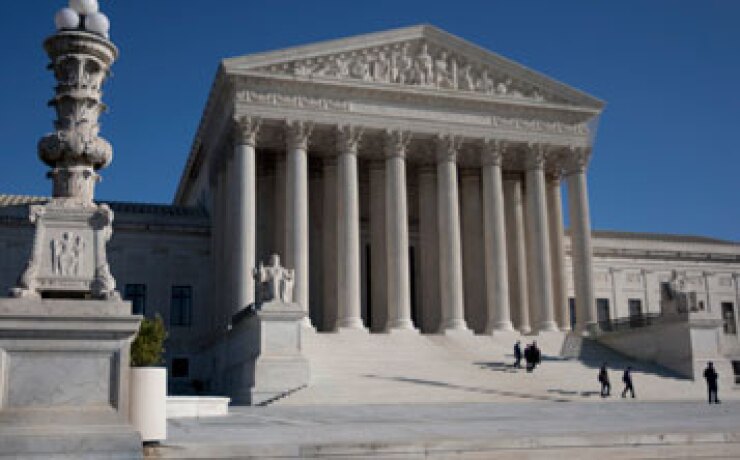
WASHINGTON — The Supreme Court said Friday it will hear a case brought forward by Corner Post Inc. — a North Dakota convenience store — to settle a dispute over the statute of limitations for the store's lawsuit challenging an interchange rule issued by the Federal Reserve.
The Supreme Court's decision to grant Corner Post's petition will revive a 2021 lawsuit brought by the convenience store challenging the Fed's Regulation II rule. The 2011 rule was enacted by the Fed pursuant to a Dodd-Frank Act provision known as the "Durbin Amendment," which directs the federal bank regulator to ensure interchange fees are reasonable and proportional to the cost incurred by the issuer of a transaction.
The Administrative Procedure Act establishes a six-year statute of limitations for legal actions challenging agency rules, but Corner Post hadn't even opened its doors until 2018 — years after the Fed's rule. Corner Post argues that because it sued within three years of opening and first being injured by Regulation II, it had met the deadline.
An Eighth Circuit ruling last year ruled in the Fed's favor, saying that under their interpretation of the APA, the six year statute of limitations starts from the date the rule is published, meaning the convenience store's suit was brought too late.
The convenience store has since petitioned the Supreme Court to appeal the lower court's decision to dismiss their 2021 lawsuit. In granting Corner Post's petition the Supreme Court stands poised to resolve this disagreement over APA statute of limitations.
The Fed's rule says banks with over $10 billion in assets could charge a fee of no more than 21 cents per-transaction, plus a percentage-based extra allowance to cover fraud losses.
Corner Post and other merchant-side plaintiffs have since contended that such a cap was too high and did not adhere to the Durbin Amendment's intent. They argue that the Fed should have strictly tied the cap to incremental processing costs, rather than including additional costs that they say inflated the cap.
As a result, the suit alleged banks profited excessively from these fees, while consumers and retailers continued to bear the burden of high interchange fees, even as banks' processing costs dwindled over the years.
Corner Post's appeal bid was supported by the Cato Institute and National Federation of Independent Business Small Business Legal Center, a small business legal advocacy group.
The Federal Reserve Board told the justices that the case did not merit review, defending the Eighth Circuit's ruling as correct and downplaying talk of a circuit split as overstated.






